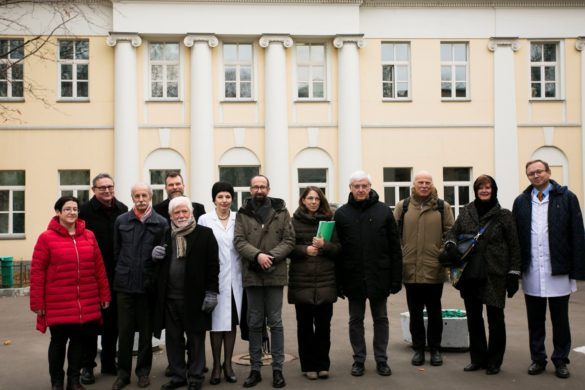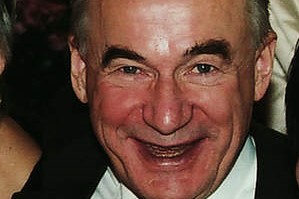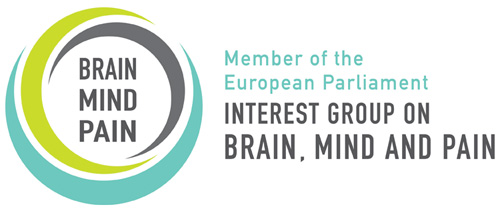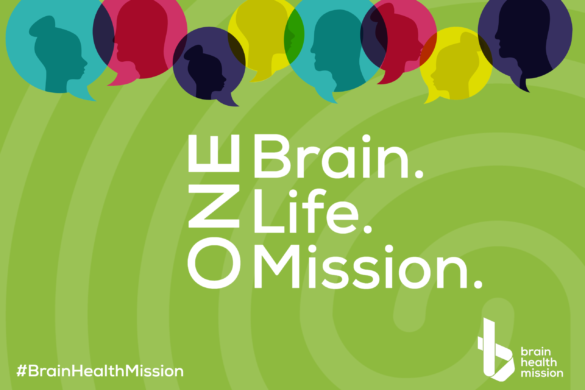in collaboration with the Institute of Neuroscience and Institute for Ageing, Newcastle University, UK; Centre for Ageing and Health (AgeCAP), Sweden; Alzheimer’s Research, UK and the African Academy of Neurology (AFAN)
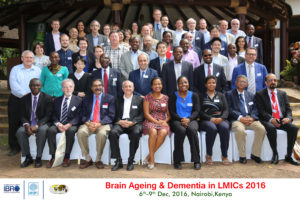
6th – 9th December 2016
Nairobi, Kenya
The landmark symposium on Brain Ageing and Dementia in Low and Middle Income Countries (LMICs) 2016, in part sponsored by the European Academy of Neurology (EAN) and the International Brain Research Organisation (IBRO) was again a remarkable success. Nearly 100 delegates from more than 20 countries attended the quadrennial conference in Nairobi. This fourth meeting highlighted recent advances in epidemiology, biomarkers, prevention and treatment for dementia, and cognitive impairment after stroke. It was an excellent forum for timely reviews on several epidemiological studies and risk factors for dementia across the LMICs in comparison to Western Europe, North America and Japan. The symposium was organized by Prof. Raj Kalaria (UK-Kenya), Prof. Raul Arizaga (Argentina), and Adesola Ogunniyi (Nigeria). The three-day programme began with a warm karibuni from Prof. Julius Ogeng’o (Kenya) representing the VC of the University of Nairobi, Prof. David Ndetei (African Mental Health Foundation), and Dr. Augustina Charway-Felli (Ghana) on behalf of the African Academy of Neurology (AFAN). The busy schedule engaged speakers coming from over the world.
International dementia experts including Rufus Akinyemi (Nigeria), Laila Asmal (South Africa), Robert Friedland (USA), Masafumi Ihara (Japan), Gladys Maestre (Venezuela-USA), Abdul Mohammed (Sweden-Kenya), David Ndetei (Kenya), Felix Potocnik (South Africa), Ingmar Skoog (Sweden) and Richard Walker (UK) chaired the 10 thematic sessions. In total, the scientific programme comprised 55 presentations on various aspects of dementia and its influence on the developing world. The conveners were also gratified that several young investigators from Africa and other countries could be sponsored to attend the meeting.
Neurodegenerative dementias, stroke-related dementia and late-onset depression are bound to rise also in the developing world, which is rapidly undergoing demographic transition. It was specifcally recognised that largely preventable stroke-related dementias are high in some communities of the LMICs. The costs and socioeconomic factors associated with dementia were noted to be magnified in many LMICs despite the changing landscape of dementia prevelance in high income countries such as the UK and USA. Some of the topics included dental microbes, sleep, language, phyto-chemicals, travel, sociocultural dimensions in screening dementia, and HIV-related cognitive impairment. Some speakers also discussed the value of physical activity/exercise and cognitive function.
The conference concluded with an Asante Sana to all, and a message from Raul Arizaga in the spirit of harambee, that working together brings greater success.
The symposium consitituted the educational and training activities of IBRO, EAN, AgeCAP (Sweden) and the past World Federation of Neurology (WFN) Dementia Research Group. The participation of the Aphasia and Neurocognitive Disorders Research Group of the WFN was particulary welcomed. The conveners are particularly grateful to the EAN for supporting the participation of Drs Thomas Bak (UK) and Jan Laczo (Prague, Czech Republic), under the aegis of the Dementia and Cognitive Disorders Scientific Panel. We are also indebted to numerous colleagues in particular Arthur Oakley (UK), Ridhi Kalaria (UK), Jamie Kendall (UK), Yoshiki Hase (UK), and William Stevenson (UK) who spent hours of effort in making sure this pace-setting symposium was a success.
For more information click here.
Reported
Prof Dr Raj Kalaria (Newcastle University and IBRO) on behalf of the convenors




